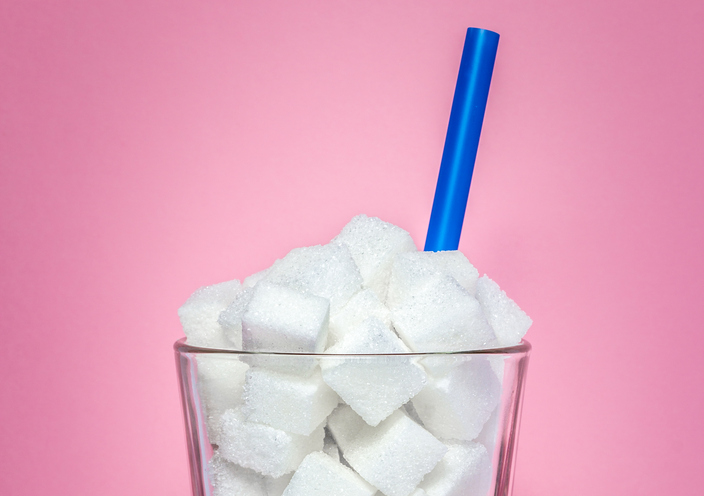Parents Underestimate Sugar Content in the Foods Their Kids Eat, Study Finds

As a trusted child dentist in Newberg, Dr. McLeod advises parents on the need for their kids to eat a balanced diet. While eating too much sugar doesn’t directly lead to the development of cavities, it does provide plaque – harmful oral bacteria that’s primarily responsible for tooth decay – with plenty of fuel it can use to produce substances that erode enamel.
Unfortunately, parents tend to underestimate the amount of sugar the foods their kids eat actually contains, according to a study conducted by researchers at the Institute of Human Development.
In the study, researchers found that approximately 75 percent of parents underestimated the total amount of sugar contained in a variety of foods they commonly allowed their kids to eat. The list of foods contained favorites like yogurt, ketchup, orange juice, granola bars, and pizza.
The largest discrepancy noted by researchers was when parents were asked to estimate the sugar content found in healthy foods. For example, 90 percent of parents surveyed in the study underestimated the amount of sugar in yogurt by an average of 60 percent.
This led researchers to conclude that parents simply don’t know how much sugar is really in the foods they allow their kids to eat. Even when they give kids food they believe healthy, parents may be inadvertently contributing to weight gain and sugar intake by not being fully informed about what’s in the foods their kids eat.
The Food and Drug Administration guidelines currently set the sugar consumption limit parents should allow for younger children at 3 to 4 teaspoons day. For preteens and teens, the amount of sugar they should consume according to the FDA is no more than 8 teaspoons a day.
Protecting a Child’s Oral Health
In this study, researchers were limited to examining how likely parents were to underestimate the sugar content of the foods their kids common consume. However, researchers suspect that that parent misjudgment may also contribute to an increased risk of poor oral health in kids.
A child dentist in Newberg, Dr. McLeod will remind parents about the risks linked to excessive sugar consumption. The more imbalanced a child’s diet, the higher their risk for tooth decay and cavities becomes. When left untreated, tooth decay can cause a child serious discomfort, which in turn could impact their performance in school.
To keep a child’s smile healthy, parents must focus on preventative dental care that helps to lower the risk for dental disease and decay. That’s why parents need to schedule regular exams and cleanings with our child dentist in Newberg, Dr. McLeod. Preventative dental care can significantly lower a child’s risk for tooth decay and cavities.
One of the reasons why researchers believe that parents have a difficult time determining the sugar content of certain foods is due to hard to understand or even misleading labels. To accurately read a food label, it can often feel like you need a decoder ring or a degree in nutrition. This confusion usually stems from the fact that most ingredients are listed on labels in terms of daily recommended values. Parents may see that a cup of yogurt contains 25 grams of sugar and not realize what that means in context of a child’s diet.
Busy schedules make it difficult for many parents to have the time to properly researcher and fully understand what their kids are eating. Foods that carry a “healthy” label like yogurt often receive a free pass, leading parents to ignore what the label says.
Fruit Juice, Secret Destroyer of Teeth
One of the biggest examples of underestimating the sugar content of an item frequently given to kids is fruit juice. Parents often view juice as a far healthier alternative than sodas and even sport drinks, both of which contain high levels of sugar. Unfortunately, most brands of fruit juice contain added sugar that makes the drink far less healthy for kids.
Just last year, the American Academy of Pediatric released new guidelines that dramatically reduce the recommended amount of juice kids should consume each today. The new guidelines recommend that kids of different age groups limit their juice consumption to:
- 12 months and younger: no juice
- 1 to 3 years: no more than 4 ounces (1/2 cup) a day
- 4 to 6: 4 to 6 ounces (1/2 to 3/5 cup) per day
- 7 to 18: 8 ounces per day (1 cup)
By limiting a child’s juice consumption to the amounts listed above, the AAP says will lead to healthier bodies and smiles.
This is just one notable example of how what we feed our kids can impact their long-term oral health. Even though juice may seem like a better option than soda, the truth actually patients are far different picture many parents may not be ready to receive.
